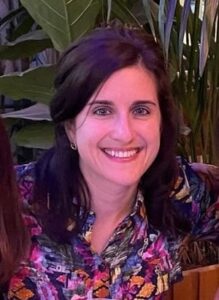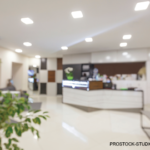‘Are you brave enough to start your own rheumatology practice?’ asks Physician Editor Bharat Kumar.’ Dr. Anna Zezon shares her experience as a solo rheumatology practitioner in this month’s issue of The Rheumatologist.’
In the current era of medicine, it is relatively rare to find a solo rheumatology practitioner. Whether due to administrative or financial burdens, insurance and reimbursement challenges, changing priorities with regard to work-life balance or the overall trend toward consolidation in medicine, it simply is not as common as it once was for a clinician to operate their own practice. In a study published in 2021 by Izadi and colleagues, only about 8% of the nearly 60,000 patients whose data were available through the RISE registry were seen by a solo practitioner.1
However, some rheumatologists have achieved success and fulfillment in solo practice. One such physician is Anna Zezon, MD. Dr. Zezon received her medical degree from the Sackler School of Medicine at Tel Aviv University (the program is a partnership between the U.S. and Israel). She completed her internal medicine residency at Montefiore Medical Center/Albert Einstein College of Medicine, The Bronx, N.Y. She went on to complete two fellowships at NYU Langone Medical Center, one in rheumatology and one in geriatric medicine. Her research activities during her training focused on a geriatric cohort with systemic lupus erythematosus (SLE). Dr. Zezon has published articles on topics that include the rheumatic manifestations of autoimmune thyroid disease and the safety of discontinuation of hydroxychloroquine in older patients with SLE.
Upon completing her training, Dr. Zezon joined the internal medicine faculty group practice at New York University as an instructor in the Division of Geriatrics. She was then part of a multispecialty group practice in New Jersey prior to opening her own practice in Teaneck, New Jersey.
The Rheumatologist (TR) spoke with Dr. Zezon about her experiences as a solo practitioner in rheumatology and the advice she would give other clinicians interested in starting their own practice.
TR: Can you talk about how you developed the idea to start a solo rheumatology practice?
Dr. Zezon: I was working at a hospital-owned practice and was intrigued by the business side of medicine. Certain circumstances required me to get involved in understanding how claims and billing were done and how the infusion business runs. Leaving an established practice has risks. At that point in time, I felt like I was able to take risks in favor of a trajectory of growth and more independence.




